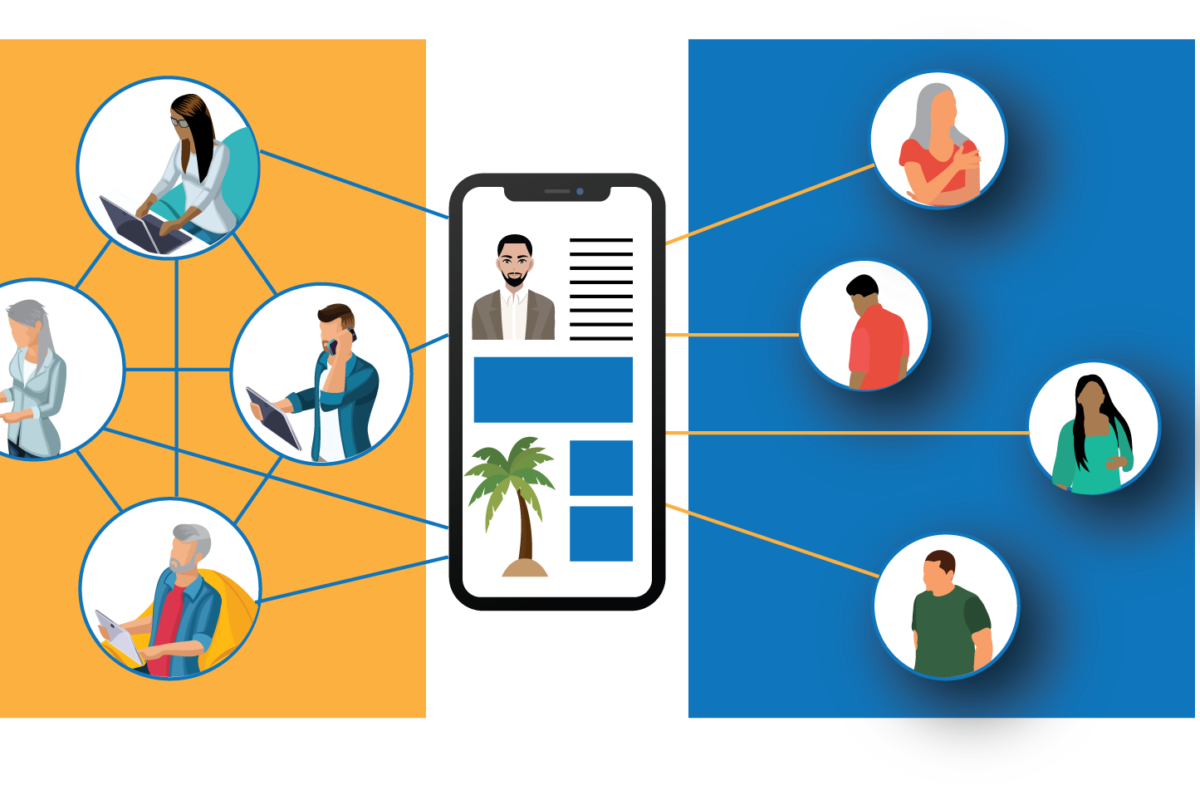Pioneering Innovation in Infectious Disease Surveillance: Bizzell’s Impact on Global Health
By Editorial Staff
In the context of global health outcomes, innovative infectious disease surveillance is crucial. As the world grapples with emerging health challenges, the role of robust data collection is pivotal. At its core, infectious disease surveillance can be simplified into a three-pronged framework. At Bizzell, this structure is Detect, Monitor, and Respond, or simply DMR, which emphasizes the capability to detect, monitor, and respond to infectious diseases accurately and precisely.
1. Early Detection: Time is of the essence when it comes to infectious diseases. Innovative surveillance mechanisms can serve as early warning systems, which help detect emergent diseases in their infancy. We believe that building strong and resilience health systems against public health threats begins with a strong health system that provides capacity and capabilities to detect threats. Identifying outbreaks swiftly can make or break global health responses. Proactive approaches are instrumental in preventing and protecting our most vulnerable communities nationwide. Proactive approaches in data collection and detection strategies also allow for the appropriate allocation of resources. Understanding the biological dynamics and trajectory of new and emerging threats can assist in deploying limited personnel, medical instrumentation, and funds in the most effective and strategic ways to maximize efficacy. Bizzell supports early detection processes through data analysis, corrective action plans, and monitoring progress. We provide technical assistance to agencies to establish or improve sentinel sites through standard surveillance-based indicators and community event-based surveillance.
2. Monitoring: Infectious diseases have no concept of borders, race, nationality, or religion. Facilitating real time data exchanges between nations and international health organizations is crucial in fostering global collaboration. Monitoring allows for a collective response to health threats, allowing shared resources, pooled knowledge, and insights to be shared both nationally and internationally. Monitoring also allows for the development of more accurate predictions of pathogenic behavior. This can help develop more concrete and strategic preparedness plans which reduce the impact of infectious diseases on communities.
3. Rapid Response: The speed in which we respond to infectious diseases plays a pivotal role in minimizing the economic impact of outbreaks. By containing diseases at an early stage, countries can avoid widespread disruptions to trade, travel, and productivity. This proactive stance safeguards economic stability and ensures that societies can rebound swiftly from health crises. The response to new health threats is one of the most important pillars in our framework as it is crucial in building public trust and confidence in government and health systems. Compliance has an enormous impact on prevention and stabilization during a health crisis. Appropriate, accurate and innovative communication about infectious disease surveillance, data, and best practices will encourage efforts to control the spread of disease.
There are many new examples of emerging technologies for infectious disease surveillance. Some of these recent technologies include wastewater surveillance, which has gained popularity through testing wastewater for COVID-19 or SARS-CoV-2 levels, to determine infection rates[1]National Wastewater Surveillance System (NWSS) https://www.cdc.gov/nwss/wastewater-surveillance.html#:~:text=Wastewater%20surveillance%20 captures%20presence%20of,or%20decreasing%20 in%20a%20sewershed
.
Other examples of innovative technologies include digital epidemiology, syndromic surveillance, social media monitoring, and artificial intelligence or machine learning. Bizzell uses real-time technology such as eIDSR (under the DHIS2 and the CEBS) for data collection, record, analysis, and interpretation public health to assist with public health decision making. A strong surveillance program is one that can integrate the digitalization of the laboratory system which is the backbone for epidemiological surveillance.
Driving innovation in infectious disease surveillance is not just technological but strategy-based as an imperative for global and national health security. The ability to detect, monitor, and respond to health threats with more precision and innovation can be the difference between safeguarding the health, prosperity, and livelihood of future generations or succumbing to mass loss of life. Knowing this, we provide technical and professional support services in the Democratic Republic of the Congo (DRC) to support the Centers for Disease Control and Prevention (CDC) Division of Global Health Protection (DGHP). We provide services and support in field epidemiology, surveillance, emergency management, and laboratory activities that enhance the CDC’s capacity to monitor and support the implementation of the DRC’s vision to promote a healthier, safer world that can prevent, detect, and respond to disease outbreaks and public health threats.
At Bizzell, we prioritize global solutions to health. We are committed to developing collaborative strategies, weaving together multidisciplinary approaches, strategic partnerships, and innovative technologies. By leveraging diverse expertise and fostering collaborations, Bizzell enhances global health outcomes, ensuring a comprehensive and unified response to complex health challenges. We hope that other health leaders duplicate the DMR framework for infectious disease surveillance as we all continue to fight the COVID-19 pandemic and other emerging threats.




